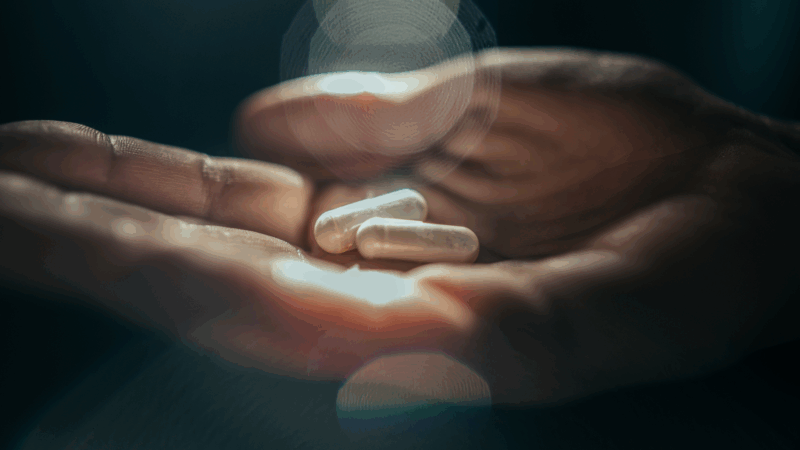Antidepressant side effects differ greatly depending on the drug, study finds
Doctors have long known that antidepressants come with side effects for cardiovascular and metabolic health.
But a major analysis from a team of researchers in the U.K. has, for the first time, pulled together data from more than 150 clinical trials to compare the physical side effects of dozens of antidepressants.
The study, published in the Lancet this week, details how each medication can affect weight, blood pressure, heart rate, cholesterol and other areas of health.
The end result is something akin to a “sports league table” for 30 different antidepressants based on their side effect profile, says lead author Dr. Toby Pillinger, a psychiatrist at King’s College London.
“It’s never been done at this scale before and no one’s ever put specific numbers to the amount of weight you’ll put on, or to the amount that your cholesterol goes up,” he says.
The findings are based on existing data, mostly from 8-week drug studies, that altogether represent more than 58,000 patients.
The most frequently prescribed antidepressants in the U.S. — Selective Serotonin Reuptake Inhibitors, or SSRIs, like Zoloft and Prozac — tended to have fewer physical side effects, according to the analysis.
Other medications, particularly some of the older drugs, were shown to have more significant impacts.
For example, a person who took nortriptyline, a tricyclic antidepressant, could, on average, have an increase in heart rate that was 20 beats higher than the SSRI fluvoxamine. For other medications, the expected weight change could be four pounds gained, or lost.
Pillinger says the intention is not to single out certain antidepressants as better than others.
“It may be that one medication which is pretty bad for one person actually is pretty good for another one. I think that is the message, rather than naming and shaming certain drugs,” he says.
Pillinger hopes the data can help prescribers and their patients make individualized decisions about the best medication.
In fact, he and his colleagues have created a free digital tool that’s already being used by clinicians all over the world to create a “menu” of options, based on a patient’s underlying health and what side effects they’d most like to avoid.
Dr. Nina Kraguljac, a professor at the Ohio State University, who was not involved in the research, says the study was well-done — and largely reassuring.
“What surprised me about this study is that side effects are not that severe,” says Kraguljac, who is also chair of the American Psychiatric Association’s council on research.
However, she stresses that “side effects alone should not guide a clinical decision,” since the study’s results ultimately reflect an average, not the individual patient.
“Side effects do not happen in every patient and are not necessarily a reason to deter people from taking the medications,” she says.
The study does have some notable limitations.
Even though many people take these drugs for months or years, the data was largely from 8-week randomized controlled trials, which are the most common.
And some prominent side effects — that cause some people to stop taking antidepressants — were not evaluated, says Dr. David Hellerstein, a professor of psychiatry at Columbia University.
He points out the impact on sexual function, gastrointestinal issues, and “emotional blunting” — a sense that feelings are being muted — are all common complaints that weren’t looked at.
Most of the side effects detailed in the study are already well-known, although he believes the work will still be “a useful touchstone” for patients and prescribers.
“Big picture, most of these drugs seem quite safe on a lot of physical parameters, especially the newer drugs, like the SSRIs and SNRIs (Serotonin-Norepinephrine Reuptake Inhibitors),” he says.
But for some groups of people, the side effects might be significant, he cautions, “and could affect what medicine the doctor would choose or what medicine a patient would prefer.”
And he notes, side effects aren’t always a downside.
Hellerstein has a patient who had lost a significant amount of weight due to depression, meaning an antidepressant that also led to some extra weight would actually be “healthy.”
“I would say that is not a side effect. That is a benefit of treatment,” he says.
The U.S. will likely lose its measles elimination status. Here’s what that means
The South Carolina measles outbreak is now bigger than last year's Texas outbreak and is happening as the U.S. is poised to lose its measles elimination status.
Israeli strikes kill 23 Palestinians as Gaza ceasefire inches forward
Hospitals in Gaza said Israeli strikes killed at least 23 Palestinians Saturday, one of the highest tolls since the October ceasefire aimed at stopping the fighting.
With decades-long restrictions lifted, a Pakistani brewery has started exporting beer
Drinking is illegal for Pakistan's Muslim majority, but Murree Brewery's beer has long been available to non-Muslims and foreigners there. Now it's being exported to the U.K., Japan and Portugal. Is the U.S. next?
A red hat, inspired by a symbol of resistance to Nazi occupation, gains traction in Minnesota
A Minneapolis knitting shop has resurrected the design of a Norwegian cap worn to protest Nazi occupation. Its owner says the money raised from hat pattern sales will support the local immigrant community.
Want to get stronger? Start with these 6 muscle-building exercises
If you're curious about starting a resistance training routine and not sure to begin, start with these expert-recommended movements.
Venezuela announces amnesty bill that could lead to release of political prisoners
Venezuela's acting President Delcy Rodríguez on Friday announced an amnesty bill that could lead to the release of hundreds of prisoners detained for political reasons.








